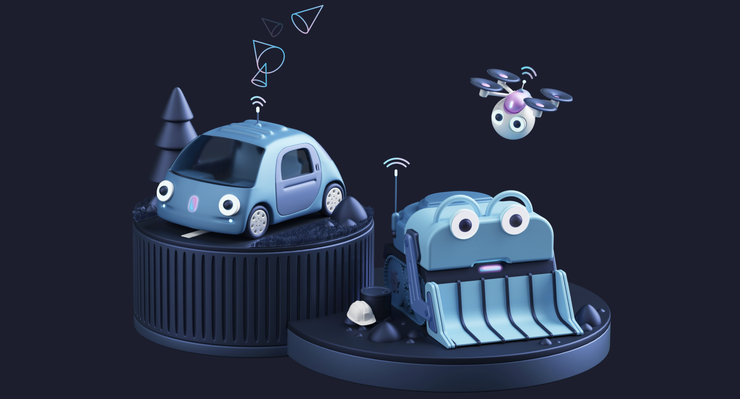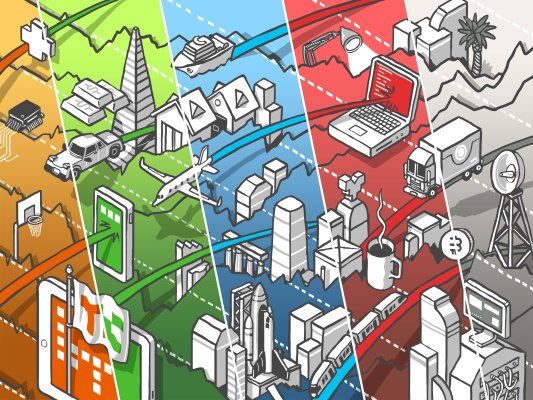Wendy Liu doesn’t think the world economy is set up in a way that serves most people, and a shining example of the inequality is in the tech microcosm of Silicon Valley.
Nowhere and at no other time is this more apparent to the San Francisco-based author than today, when California is scrambling to come up with enough life-saving equipment and hospital space to care for the thousands of people infected with the coronavirus.
In her new book “Abolish Silicon Valley: How to liberate technology from capitalism,” coming out April 14, Liu explains how the powerhouse of capitalism today isn’t industrial robber-barons as it was 100 years ago, but the tech giants that have gripped our attention with their apps, companies and platforms. Liu “writes about technology and politics with a leftist bent,” and in her new book talks about her experience in Silicon Valley and forges a manifesto about the tech industry.
This interview has been edited for clarity and length.
Q: What does Silicon Valley mean to you and why do you want to “abolish” it?
A: I really start by talking about what people interpret the term as being. For me, it’s the same way you can say Wall Street or the military or the police as based on our personal experiences with those institutions.
When I say Silicon Valley, I’m not talking about the system of innovation that is unleashing creativity and wealth and jobs and wonderful engines of prosperity but rather as a relationship between tech and capital.
This is manifest in the way tech companies are funded through venture capital firms, going public or taking money from stock and the public. The problem is the fact that tech is ultimately interrelated to capital and right now capital is in a very concentrated and not representative group of people.
I ask the question, can we find a way of developing tech that is actually serving the public, social need without it being in the same system that has produced so much of the waste and inequality that we see.
Q: In much of your book, you talk about the failures in the tech industry, from Theranos to WeWork and what you call the ticking time bombs of Uber, Lyft and other companies that have gripped the attention of capital but which are not profitable. Are any of the underlying concepts for these companies new to capitalism?
A: There’s always a bit of novelty that’s overhyped with these firms. If you look at Uber, what is new about Uber is you have the app that is able to connect drivers and users.
People can see where you’re going with that because that didn’t quite exist in the same way, but nothing else about it really is new. The idea of moving people around in that way is the taxi industry, but Uber is making so much more money than the taxi industry which it is forcing out of the market.
The only way that makes sense is that it’s an economic innovation for the accumulation of capital that captures more of the rewards.
Q: So many of these companies are also predicated on the idea that it will eventually disrupt a legacy institution to the point where it will become the sole provider of that commodity or service. Uber and Lyft both want to be the app-based taxi service for the world. Why is capital so attracted at this point to monopolization?
A: If you’re a venture capital firm, you have to back disruptive industries. The economics of the industry is that most companies will fail and you have to invest in companies that are thinking big.
You want to find the whales, you don’t want to miss the next Amazon because people will think you’re an idiot. The companies that are profitable are not profitable because of some preordained reason, most are taking advantage of monopolies of some sort.
Why are Google and Facebook so big? They have control over the advertising thing and used it for wealth extraction. Google and Facebook created a new system to deliver advertising. Tech companies are trying to make money as best they can and to have some sort of monopoly and extract rent from that.
That’s kind of the whole dream of capitalism is making money without a lot of challenges, something akin to a monopoly. Peter Thiel wrote a book about it, that’s just how capitalism works.
Q: As much as your book is about the critique of capitalism as seen through tech companies in Silicon Valley, it is also about you. What got you into tech and how did your journey in Silicon Valley go?
A: When I was younger I didn’t know anyone in person that had anything to do with tech. I learned about technology in a piecemeal way through the internet and reading blogs and going on forums.
When I was 12 I started making websites. Once I got to college, I got started working as a software engineer at the university research labs. I definitely believed all the mythology back then. I would read hacker news all the time and wanted to be one.
I dreamed about it until 2012 when I applied for a Google internship and that was when I dove into it. I told myself, “I’m going to be living in the valley.” I was convinced this would be my future. It didn’t occur to me to be critical of anything.
Q: What soured your appeal for Silicon Valley?
A: I was definitely not blown away by my experience at Google. There were some moments that were amazing and I got to meet people in person that I’d always dreamed of meeting.
The rest of it was very underwhelming.
Then after a few years, I started following the news on the tech industry and venture capitalists being accused of sexual assault. Companies that I idolized were also failing.
I started paying more attention to everything that was going on and there came a time when it occurred to me that what I noticed were not isolated things in the tech industry, but they were part of our biggest problems. The problems I’ve seen in Silicon Valley went beyond the tech industry.
Q: How do you fix this broken system?
A: Overall the goal that I’m thinking about is that you have the private sector so overfunded and glorified that it seems like the only way to do things, but things could be much better serviced by the public sector without the profit motive that the private sector demands. Reclaim the wealth from capital, push back capital and fund public innovation.
There’s the way we look at work in the tech industry. We need greater protections. Right now the way it works is all these tech companies are predicated on a very particular way of regulating work and will hire people short-time and pay them nothing and not provide them with safety nets.
There are also companies that shouldn’t necessarily exist. A lot of companies are being funded to do something the public sector could’ve provided. Instead of good public transit, we have Uber. Instead of a good social mobility system, we get paid scooters.
What people want is to streamline a centralized system that is run in a way that is accountable and actually serves the public.
We also need to reclaim culture. It really frustrates me to see brand logos everywhere. Salesforce Park for example, it has the Salesforce logo everywhere. Why do we need Salesforce? Why do we need to say thank you to Mark Benioff every time we go to the park?
My Utopian view is to put tech companies in full public view. Expropriate platforms and turn them into municipal services, public services and make them open-source.
I have a hard time seeing specifics because it seems so impossible, but there’s definitely a model we could come up with that will lead to a more accountable and equitable Silicon Valley.
WENDY LIU PROFILE
Job: Author of “Abolish Silicon Valley: How to liberate technology from capitalism.”Age: 27Residence: San FranciscoEducation: Bachelor’s in math and computer science from McGill University in Montreal. Master’s degree in inequalities and social sciences from the London School of Economics.Family: A husband and a cat.
FIVE THINGS TO KNOW ABOUT WENDY LIU
- Favorite shelter-in-place meal these days are digestive biscuits that friends from the UK have brought her and heated up cans of soup. She said she knows she’s not supposed to binge eat the digestive biscuits, but she does anyway with a nice cuppa.
- Her first job was in 2011 as a research assistant at the Music Technology Lab at McGill University.
- Her main hobbies are reading books — mostly fiction, but most recently labor history — as well contemporary dance.
- Liu’s favorite Pokemon is Mudkip, “as you may have heard.”
- The origin of her Twitter handle (@dellsystem) isn’t very cool, she said, and goes back to a throwaway username that stuck. She said she has since “come to term with dellsystem” and will answer to “dell.”









